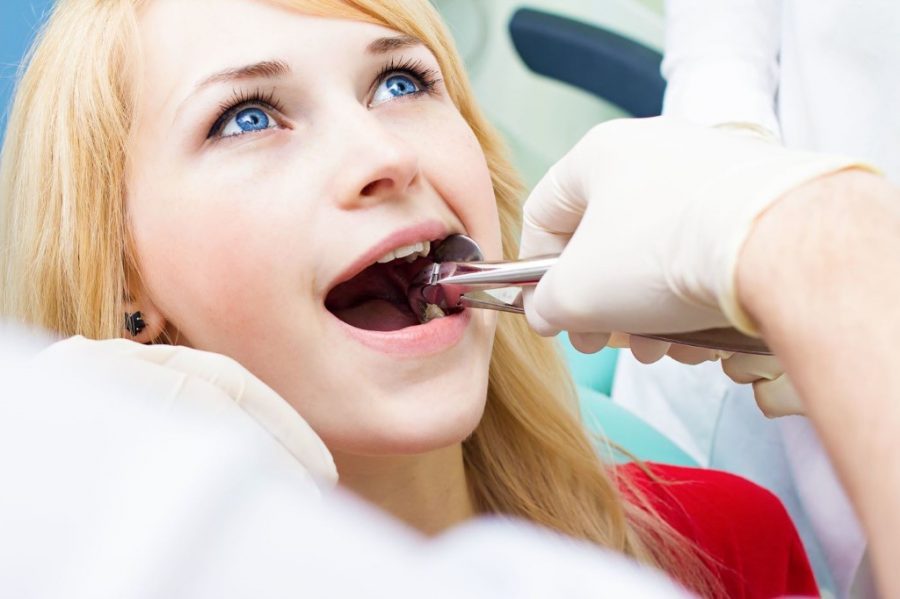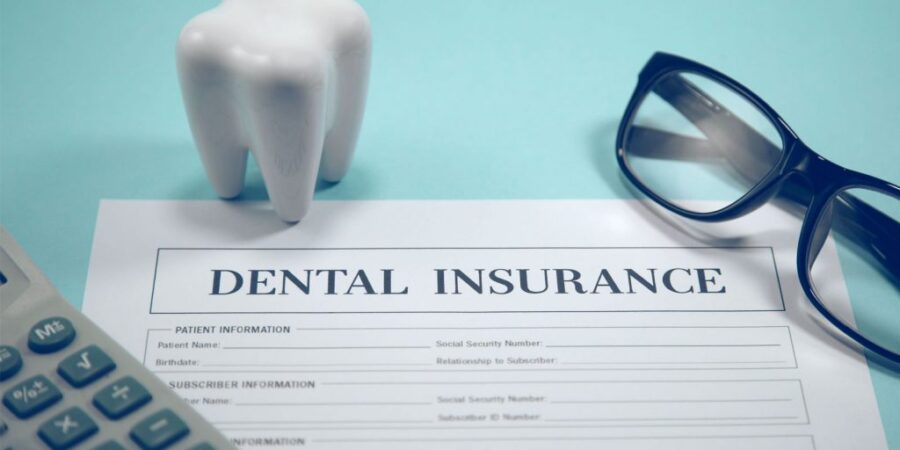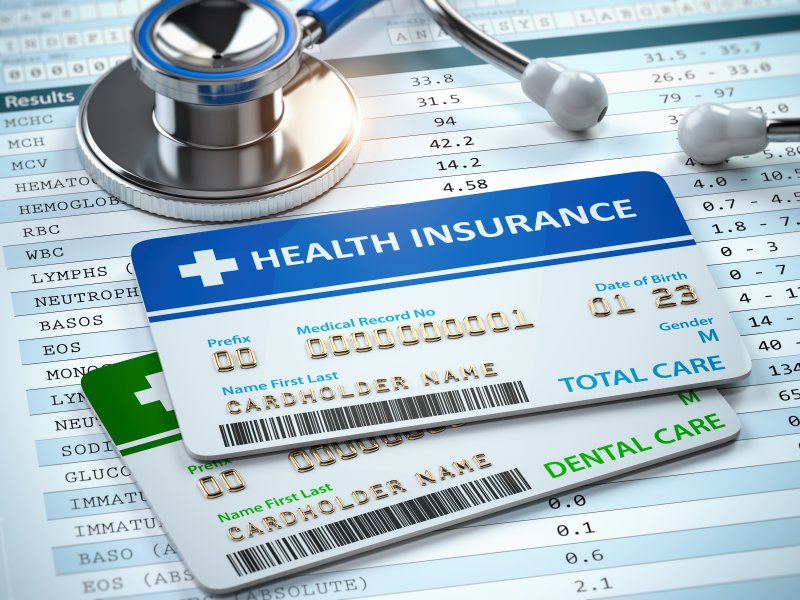The dilemma of whether it is wiser to pull out your wallet and pay cash or to rely on the consoling crutch of insurance coverage often comes up as you traverse the maze of oral health. Imagine yourself in this scenario: you’re waiting for a procedure or check-up in the dental clinic, and the receptionist asks nicely, “Cash or insurance?” Many people have this conundrum on their minds. We’ll analyse the benefits and drawbacks of each choice in this talk, highlighting the details that are sometimes overlooked in the clinical spotlight.
Dynamics of Dental Cost | Cash or Insurance at Clinic
A deeper examination of the breakdown of typical treatments and their accompanying prices is necessary to navigate the world of dental costs. Making an informed investment in your dental health requires knowing the cost effects of more involved treatments, preventive care, and routine checkups.
Routine check-ups
Preventive care starts with routine dental examinations. Regular check-ups are often inexpensive, but they are essential for identifying problems early on and possibly avoiding more expensive procedures later on.
Cleaning and Scaling
The cost of professional cleaning and scaling varies depending on the degree of plaque accumulation, among other things. By keeping up with cleanings, you can prevent more serious issues that could require expensive treatment.
Fillings
Costs can vary depending on the type of filler used; amalgam is less expensive than composite. Early cavity fillings stop more deterioration and treat the problem before it becomes more complicated and costly.


Root Canal Therapy
The location of the tooth and the intricacy of the treatment are two variables that affect root canal prices. Although more expensive, a root canal provides a long-term fix by preventing the extraction of a tooth.
Extractions
In general, simple extractions are less costly than surgical ones. In severe circumstances, extractions might be required, and budget planning requires a grasp of the accompanying costs.
Understand the Financial Impact on Your Budget
Insurance Coverage: Assess your dental insurance coverage to understand how much of the costs are shouldered by your provider. Recognize coverage limitations and exclusions that may influence your financial responsibility.
Deductibles and co-pays: Familiarize yourself with the deductibles and co-pays applicable to your insurance plan. Plan for these upfront costs, as they contribute to your overall dental expenses.
Out-of-Network Considerations: Understand the financial implications of choosing out-of-network dental providers. Balance potential cost savings with the convenience of in-network options.
Budgeting for Unforeseen Expenses: Account for potential unforeseen dental issues that may arise between scheduled appointments. Allocate a portion of your budget for emergency dental care.
Cash or Insurance at Dental Clinic: Pros and Cons
Negotiation Power for Discounts
Patients frequently take advantage of reductions when they choose to pay cash for dental services. Since they lessen the administrative strain of billing and handling insurance claims, many dental clinics value advance payments. Patients can receive cost reductions on a range of therapies in exchange, which makes paying with cash an appealing choice for individuals looking for affordability.

Immediate Access to Services
The process is streamlined by cash payments, which do not require pre-authorization or insurance provider verification. When paying with cash, patients can receive dental care right away without having to wait around for insurance paperwork to be processed. This can be especially helpful in emergency cases where oral health requires quick attention.
Simplified Billing and Reduced Paperwork
Cash transactions significantly simplify the billing process for both the patient and the dental clinic. Without the complexities of insurance claims, billing becomes more straightforward, leading to reduced paperwork and administrative overhead. This simplicity not only benefits the dental practice but also offers patients a clearer understanding of their expenses.
Drawbacks of Cash for Dental Treatment at Clinic
Lack of Reimbursement Options
If a patient pays cash, they are responsible for the full cost, unlike with dental insurance, where they usually receive a partial reimbursement. The absence of compensation options may be problematic, particularly for costly procedures or unanticipated oral problems that could put a strain on a person’s finances.
Limited Financial Flexibility
Making cash payments could necessitate a substantial upfront financial outlay. Paying with cash might be difficult for people who don’t have a lot of money, especially if they have unforeseen dental costs. Some patients may find accessibility restricted by delayed payment schedules or a lack of installment choices.
Potential Strain on Personal Finances
Choosing to pay cash for dental care could put a strain on one’s budget, particularly if the procedure is expensive. This may make it more difficult for the person to handle other necessary costs, which could result in financial stress. Before selecting this payment option, patients must evaluate their overall financial status.
Details of Dental Insurance in India Clinic
Cost-sharing and Reduced Out-of-Pocket Expenses
Cost-sharing arrangements are common with dental insurance, where the patient pays a portion of the treatment costs after the insurance provider covers a certain amount. By drastically lowering policyholders’ out-of-pocket costs, this cost-sharing program helps make dental treatment more affordable.
Access to a Network of Preferred Providers
Dental insurance plans may include a network of preferred providers, which are dental offices and practitioners who have made arrangements with the insurance carrier. Patients who select doctors from this network frequently experience increased savings and more predictable costs, which promotes convenience and financial stability.
Financial Security in Case of Unexpected Dental Issues
Unexpected dental issues are covered by dental insurance. Insurance provides financial security in the event of mishaps, unexpected oral health problems, or the need for extensive dental work. Peace of mind is enhanced by policyholders’ ability to handle unforeseen events without having to worry about crippling debt.
Drawbacks Associated with Dental Insurance
Monthly Premiums and Potential High Deductibles
The monthly premium payment requirement is one of the main disadvantages of dental insurance. These premiums are a recurring financial obligation, even if they help maintain coverage. High deductibles—the amount a policyholder must pay out-of-pocket before the insurance coverage begins—may also be a feature of some insurance plans. For those with limited resources, this may present a financial hardship.

Pre-authorization Requirements and Waiting Periods
Pre-authorization procedures are frequently a part of dental insurance; these procedures require approval from the insurance company before coverage is verified. Delays in obtaining essential medical care may result from this, particularly for elective or non-urgent operations. For people in urgent need of dental treatment, waiting times—especially for significant services—can potentially be a hindrance.
Exclusions and Limitations on Certain Procedures
Dental insurance coverage frequently has restrictions and exclusions for particular treatments. Certain elective operations, orthodontic treatments, and cosmetic dentistry may not be fully covered or may not be covered at all. To comprehend the extent of coverage and any potential restrictions, patients should carefully consider the policy specifics.
Informed Decision | Cash or Insurance at Dental Clinic
Develop a Checklist
- Financial Comfort Zone: Assess your current financial situation and determine a comfortable budget for dental expenses. Consider how much you are willing to allocate to dental care without compromising other financial priorities.
- Risk Tolerance: Evaluate your risk tolerance regarding unexpected dental issues and their associated costs. Determine whether you prefer the security of insurance coverage or the flexibility of managing costs independently.
- Long-Term Planning: Align your decision with long-term financial planning goals. Consider the impact of your choice on both immediate and future oral health expenses.
- Personal Values: Reflect on personal values and preferences related to healthcare choices. Decide whether the convenience of insurance or the autonomy of cash payments better aligns with your values.
- Frequency of Dental Visits: Assess how frequently you visit the dentist for various procedures. Evaluate whether insurance premiums justify potential savings based on your dental care habits.
Seeking Advice from Financial Advisors or Insurance Experts
- Consulting Financial Advisors: Seek advice from financial advisors to gain insights into your overall financial strategy. Discuss how dental expenses fit into your broader financial plan and seek recommendations on balancing cash and insurance payments.
- Insurance Expert Guidance: Engage with insurance experts to understand the nuances of dental insurance policies. Clarify any uncertainties regarding coverage, limitations, and potential out-of-pocket expenses.
- Comparing Policies: Explore the different insurance policies available on the market. Compare premiums, coverage, and network options to choose a policy that aligns with your dental care needs.
- Evaluating Cost-Benefit Analysis: Conduct a cost-benefit analysis with the help of experts. Understand the potential savings or drawbacks associated with insurance versus cash payments.
Conclusion
Weighing the benefits and cons is important when debating whether to pay with cash or insurance at the dental clinic. Power in negotiations, quick access, and straightforward billing for cash payments are all stressed by Dr. Chirag Chamria. Dental insurance, on the other hand, provides financial stability, a network of providers, and cost-sharing. The creation of a customized financial plan is advised by Dr. Chamria. In the end, give oral health top priority without sacrificing your ability to pay your bills. A healthy mouth and financial security are the results of making educated decisions, whether at the dentist office you choose to pay with cash or insurance.





